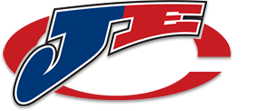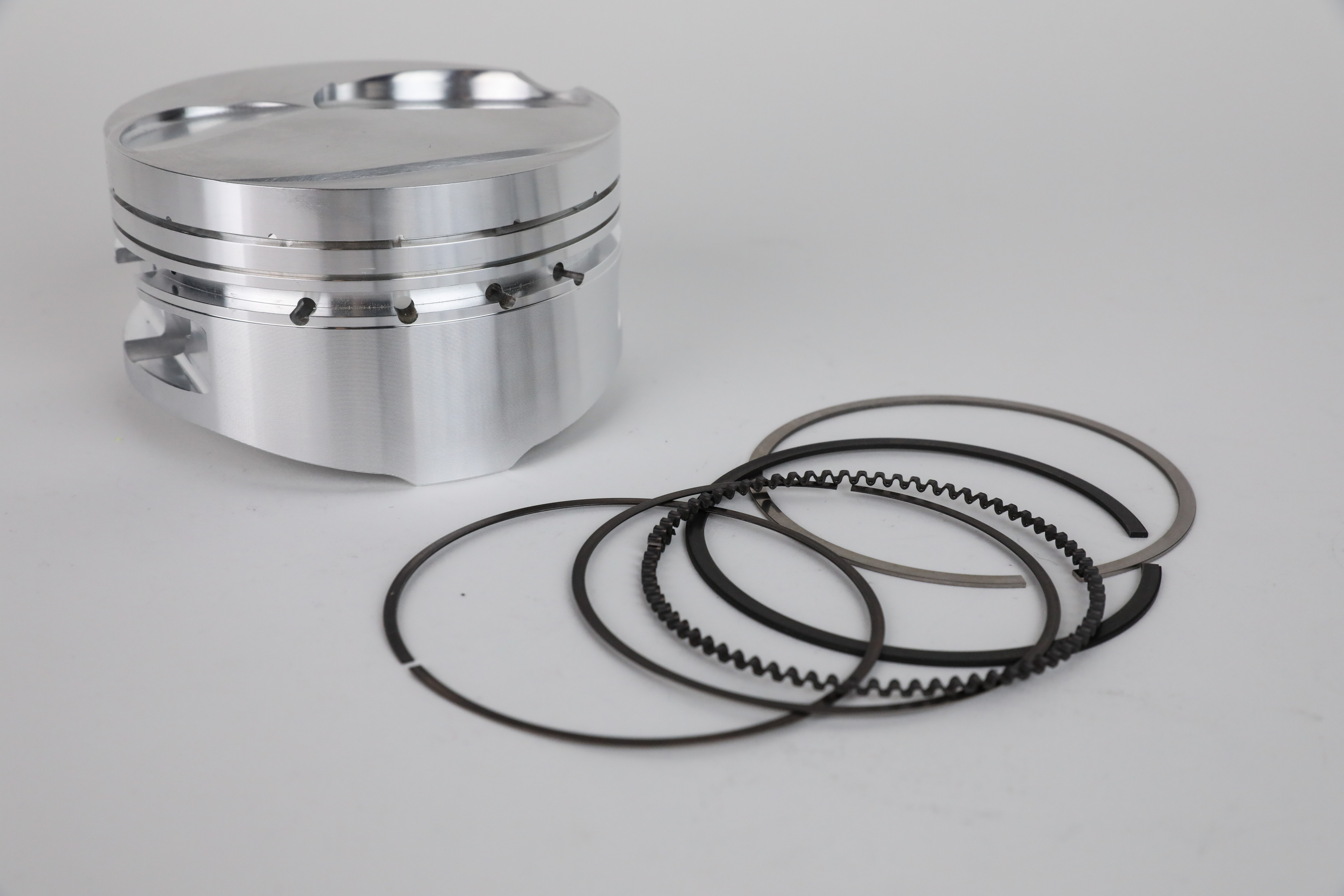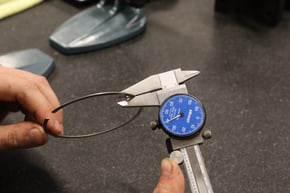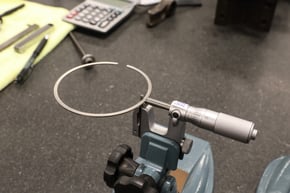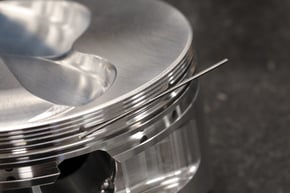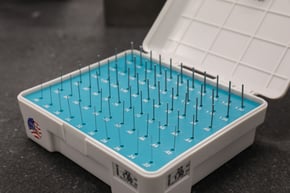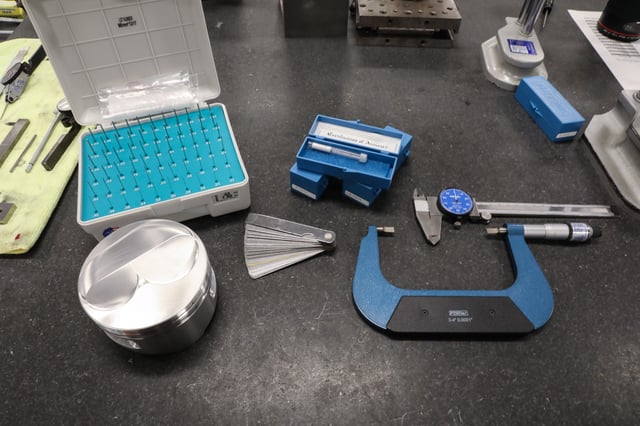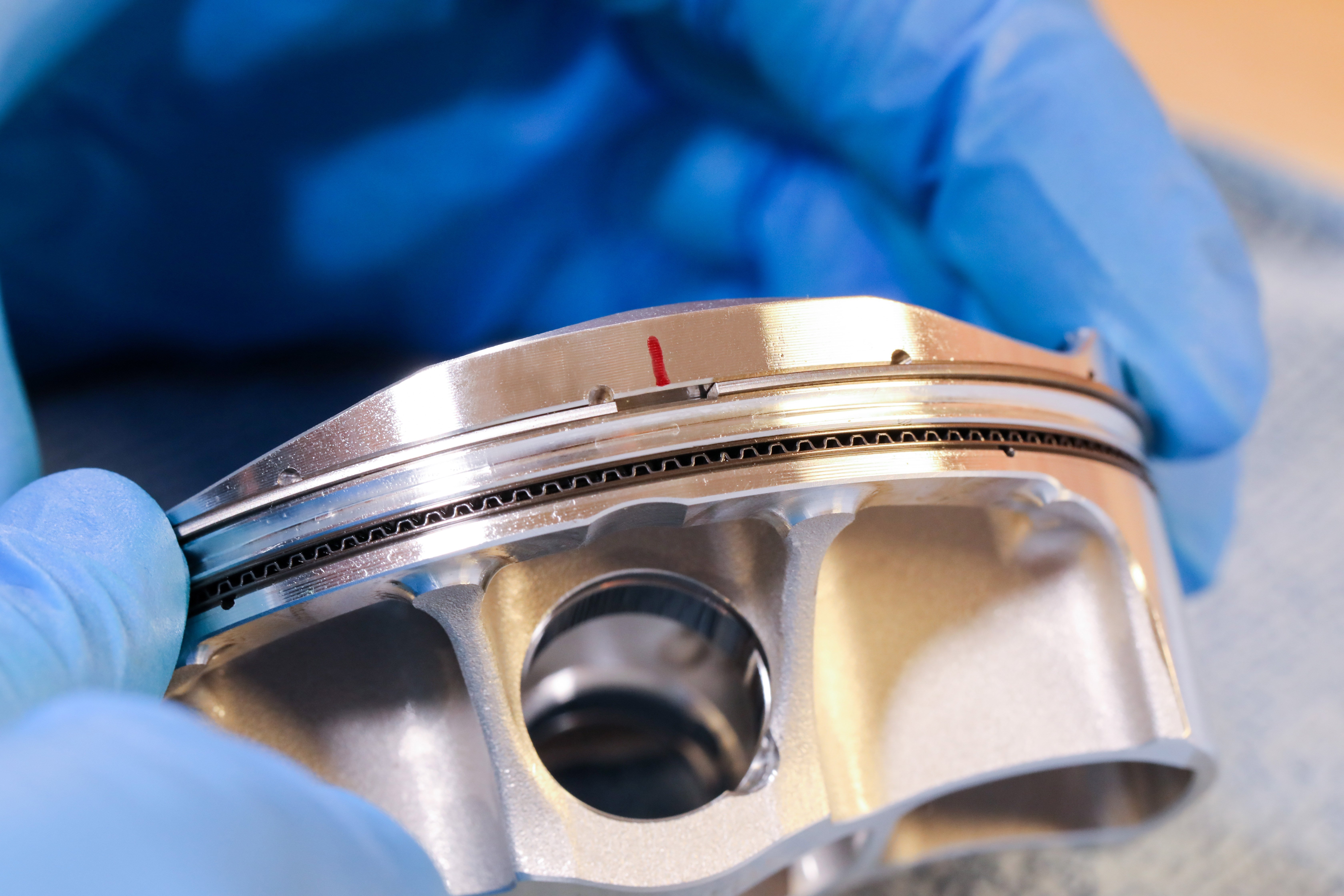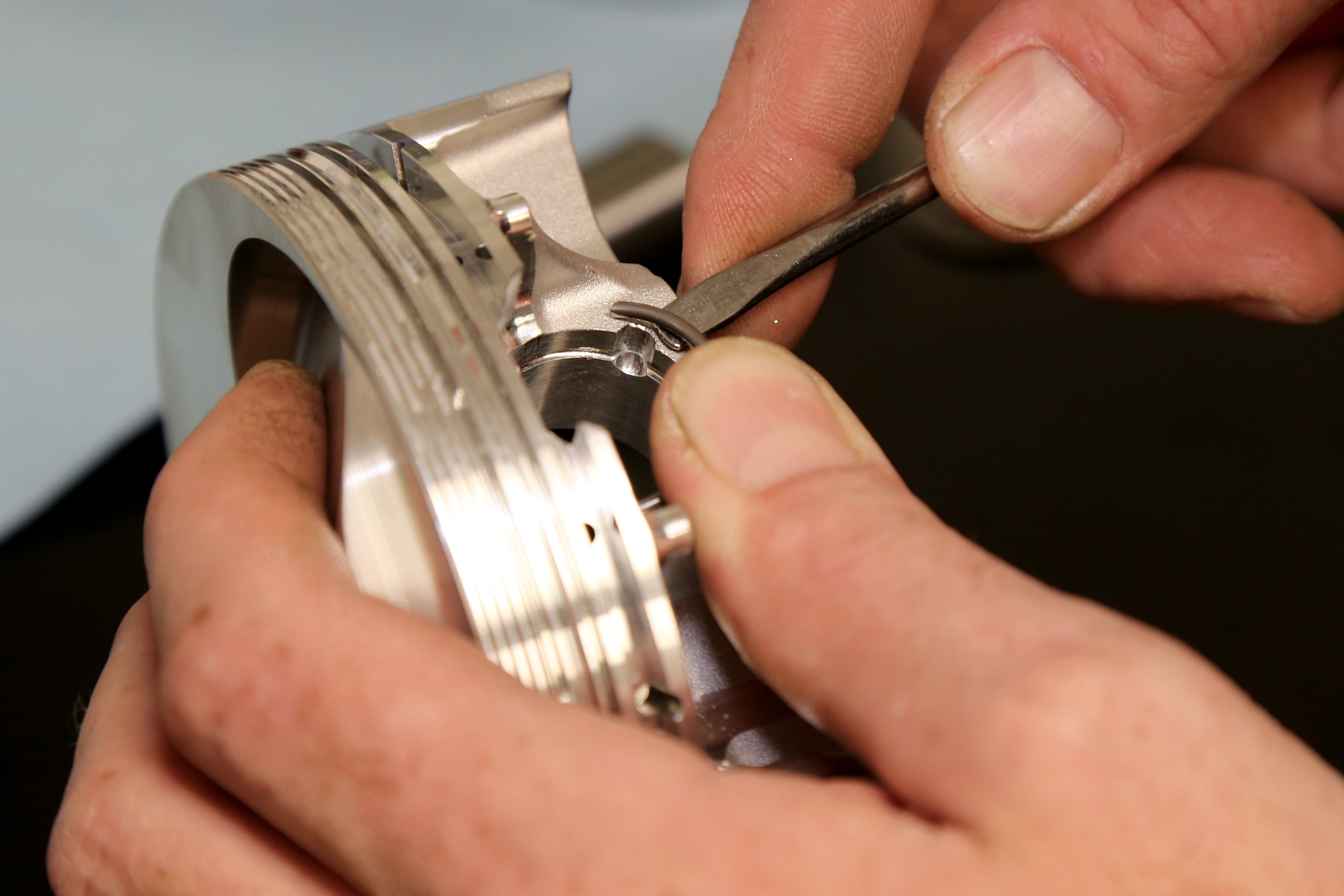So, you have a set of pistons that you want to re-ring, but you don't which rings to order. Here, we go over the options you have for measuring your old rings or ring grooves so JE can get you the rings you need.
Forged pistons are a durable, high-performance option for many engines, and last a long time in various applications. Because of the lasting quality of forged material, replacing the piston(s) is not always necessary. JE pistons has many customers that have been running the same pistons for a long time, and they’re still well within safe running condition. However, these customers still need to periodically replace rings as practice of proper maintenance to help maintain efficient sealing and keep blow-by to a minimum.
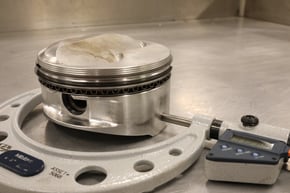
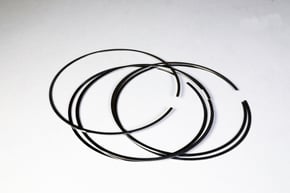
Replacing piston rings is easy, but ordering the correct replacement rings is not always cut and dry. If you have a JE piston—or set of pistons—you need rings for, you can usually provide the part number or job number over the phone to a JE tech expert and they’ll be able to tell you what ring pack part number will get you going again. That’s the easy situation.
However, there are many racers, builders, and enthusiasts out there that have some JE pistons that don’t have any laser marked numbers on the bottom of the pin tower. When there is no number present, this means the piston was manufactured before laser marking was implemented in 2005.
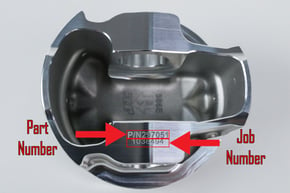
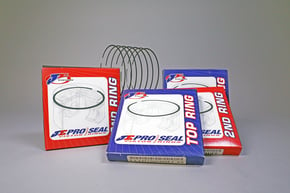
Need help identifying other markings on your pistons? Check out our guides for Powersports and Automotive.
Analyze Your Used Rings to Identify New Ones Needed
So, how do you know what rings to order if you don’t have a reference number? Here’s some tips to help you be prepared with the data you need to order the correct replacement rings.
First, make sure your old/worn out rings are off the piston. With the rings off, measure the axial height (this is the thickness of the ring) and radial width (the width of the ring from the outer edge to the inner edge) of the oil ring assembly with a set of calibrated calipers or a micrometer, whichever you have easy access to. Make the sure the oil ring assembly is assembled correctly—like it would be when sitting in the ring groove—while measuring. It should be assembled with two oil rings sandwiching the expander ring. Measure and record the axial height of the assembly, as well as the radial width.
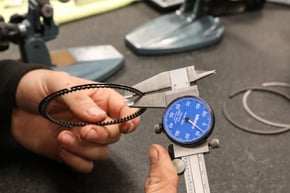
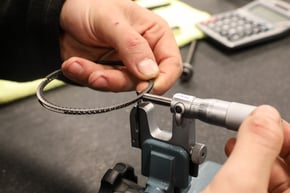
After recording those measurements, perform the same axial height and radial width measurements of your compression ring(s). In addition to these measurements, you’ll want to look for specific compression ring characteristics, such as shape, bevels, notches, and markings, that can determine which type of ring(s) your piston originally came with. Note that ring characteristics will vary between top and second compression rings. Compare your compression ring characteristics to the JE chart below.
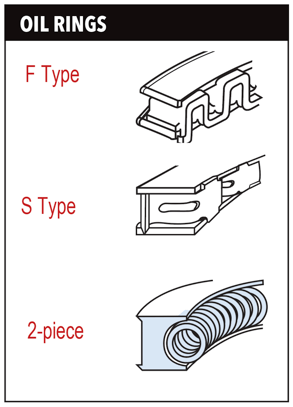
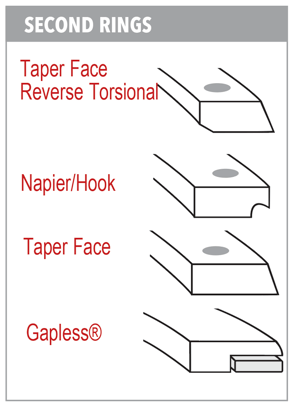
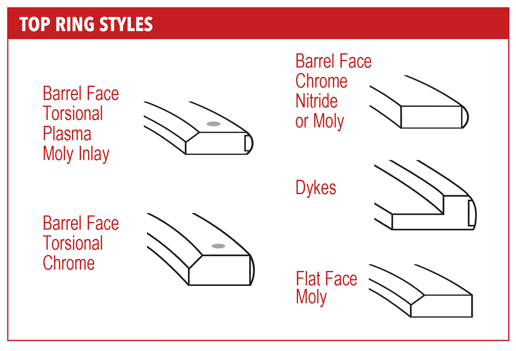
Want to know more about ring material and design? Read this!
After all your measurements are recorded and you have identified what style compression rings you have, you’re ready to call in and provide your information to a JE tech expert so they can get the correct part number coming to you.
Don’t Have Old Rings? Measure Your Ring Grooves
In some cases, you may acquire a set of used pistons that are still in good condition, but did not come with the old rings. If these used pistons do not have a job number or part number laser-marked, you’ll need to take a few measurements of the ring grooves to accurately track down which exact ring set you’ll need for your pistons.
First, measure the axial height of each ring groove. Axial height refers simply to the height of the ring groove itself. For exact measurements and engineering purposes, JE uses precision-sized pin gauges to measure ring grooves.
However, not every person will have a set of pin gauges in their garage. In this case, use a set of calipers to take as accurate a measurement as possible. This will get you close enough for the JE tech experts to know which ring pack your piston was designed for. Take the axial height measurement for each compression groove and the oil ring groove.
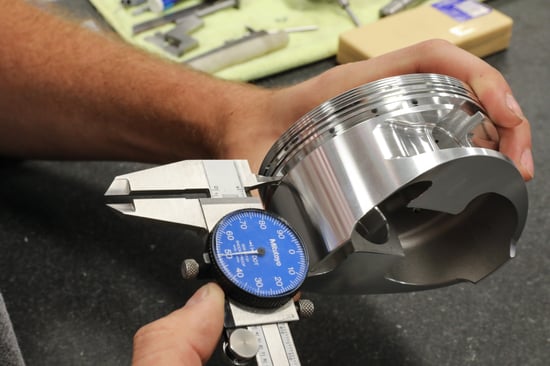
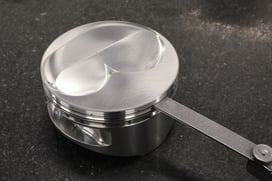
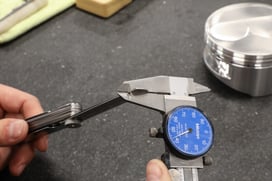
It’s important to note that some pistons are designed and machined with accumulator grooves. While they can be confused as a ring groove, they are not designed to house any rings. When present, accumulator grooves are set between the top and second compression ring, and are purposed to allow any gases that make it past the top ring to expand, preventing ring flutter and reinforcing ring seal.
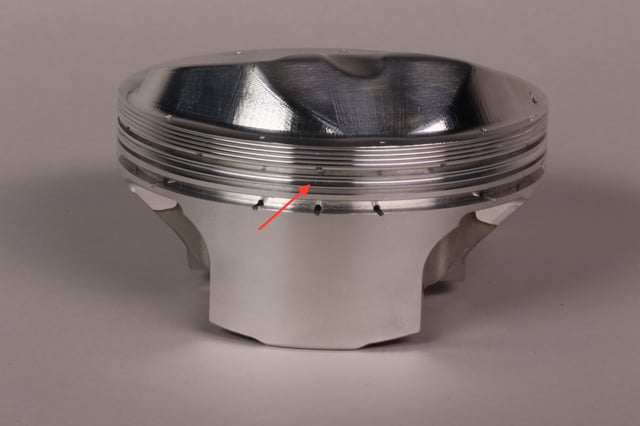
In addition to measuring axial height of the ring grooves, the radial depth will also need to be measured. Radial depth is the distance from the outermost surface of the ring groove to the inner wall of the ring groove. Radial depth may be difficult to measure to measure without pin gauges, but if a close measurement is taken and provided in conjunction with the axial height and bore size, JE tech experts should be able to narrow down the ring pack needed.
Bore size is another critical measurement to be taken and provided to help identify the correct rings.
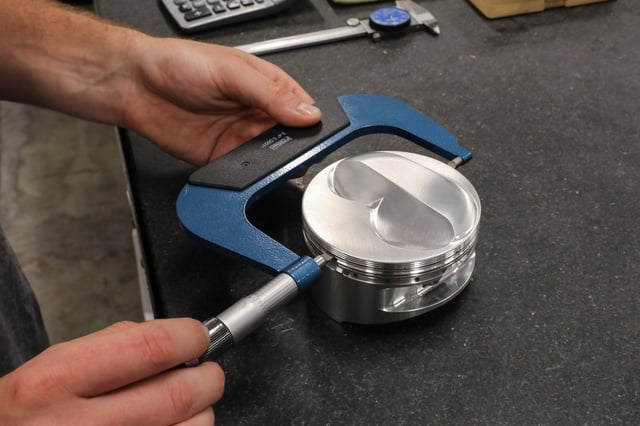
Whether you’re providing measurements of old rings or ring grooves, providing all critical measurements—axial height, radial depth, and bore size—is important to help JE figure out what rings you need. This is because there are some situations where two ring packs may have the same axial height, but varying radial depths.
Don’t Have the Means to Measure? Let JE Take Care of It
If you’re unsure about taking accurate enough measurements, or you don’t have the proper means to provide the measurements yourself, JE would be happy to take care of it for you. Simply contact JE and let them you know you need measurements taken for new rings, send in your piston(s), and JE will take exact measurements and let you know which ring set to purchase.
